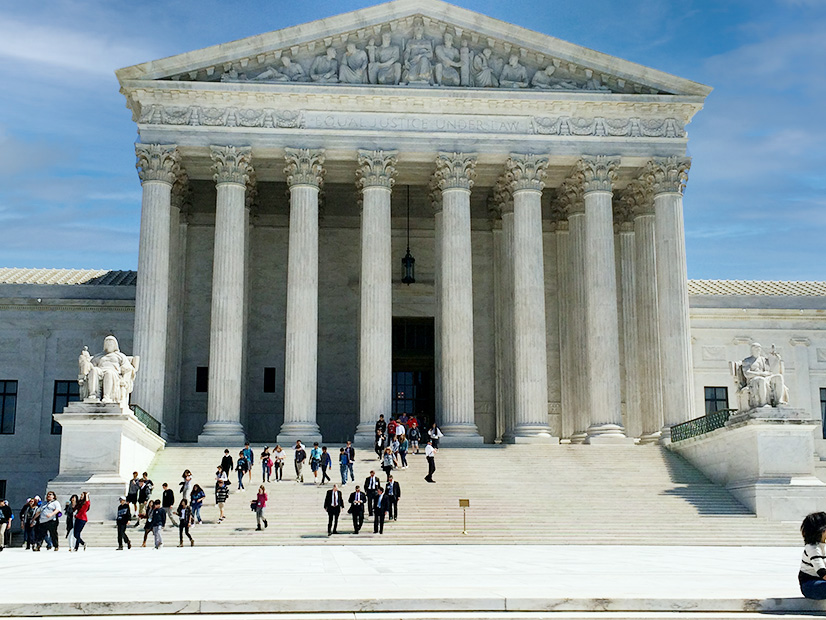
Texas has petitioned the U.S. Supreme Court to review the 5th U.S. Circuit Court of Appeals’ 2022 ruling that the state’s law giving incumbent transmission companies the right of first refusal to build new power lines is unconstitutional.
In a Dec. 28 filing, with Texas Public Utility Commission Chair Peter Lake as the lead petitioner, the state asked the high court for a writ of certiorari, a formal request to review a lower court’s judgment against the petitioning party.
The petition comes after the 5th Circuit’s August decision in NextEra Energy’s challenge to a 2019 Texas law (Senate Bill 1938) that set up ROFR within state lines.
The appeals court ruled that Texas’ ROFR law violated the U.S. Constitution’s dormant Commerce Clause. It remanded the case back to the U.S. District Court for Western Texas, saying it should proceed beyond the lawsuit’s pleading stage (20-50160). (See 5th Circuit Finds in Favor of NextEra’s ROFR Appeal.)
The district court in 2020 rejected NextEra’s claim that the Texas law violated the clause because it only allowed the incumbent state owners of a transmission line’s end points to build, own and operate new lines. The court said the legislation doesn’t discriminate against interstate commerce because it “regulates only the construction and operation of transmission lines and facilities within Texas.” (See District Court Dismisses Texas ROFR Repeal.)
Texas said the question in the proceeding is whether “consistent with the Commerce Clause, states may exercise their core police power to regulate public utilities by recognizing a preference for allowing incumbent utility companies to build new transmission lines … or if such a preference necessarily violates the Commerce Clause, as the 5th Circuit held.”
Noting that the Supreme Court has said regulating utilities is “one of the most important of the functions traditionally associated with the police power of the states,” Texas said it exercises this power by regulating electric transmission throughout the state.
“For decades, the accepted view across the nation was that system reliability, efficiency and cost for ratepayers are all best served when new transmission lines are built by the owners of the endpoint facilities to which the new lines would connect,” Texas said in its petition. “Even when [FERC] changed course [in Order 1000], it expressly preserved states’ ability to maintain that policy.”
Lake was joined as a petitioner by his four fellow commissioners. The respondents include NextEra Energy Capital Holdings, NextEra Energy Transmission (NEET), NextEra Energy Transmission Midwest, Lone Star Transmission, NextEra Energy Transmission Southwest, Southwestern Public Service, Entergy Texas, Oncor, LSP Transmission Holdings II and East Texas Electric Cooperative.
The high court says it receives about 10,000 petitions requests for writs of certiorari each year. Only 100 or so eventually receive the writ and have oral arguments before the court.
NextEra subsidiaries were involved in two projects in Texas’ non-ERCOT footprint that ran afoul of the ROFR law. NEET Midwest won a competitive bid in 2018 for a $130 million, 500-kV project in East Texas. MISO said last year that planned capacity in the region had negated much of the project’s economic benefits. (See MISO on Verge of Cancelling Hartburg-Sabine Tx Project.)
NEET Southwest also applied to the Texas PUC in 2018 to transfer ownership of 30 miles of 138-kV facilities from Rayburn Country Electric Cooperative in SPP’s East Texas footprint. That application was withdrawn in 2020 after SB 1938 became law (48071).



